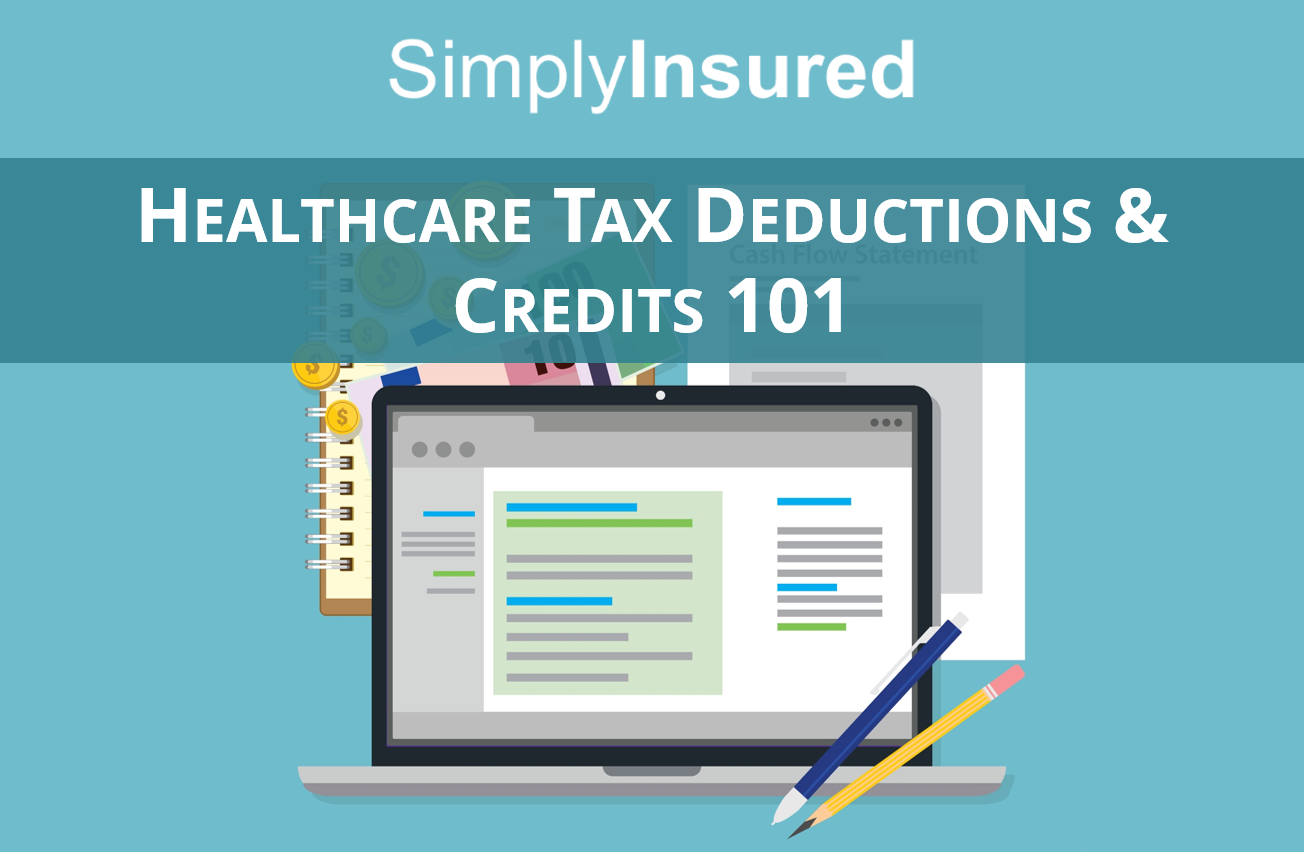Healthcare Tax Deductions & Credits
Tax season is among us. When it comes to health insurance, many people are unaware to all the deductions or credits that can save you significant money on taxes this year.
To make sure you are not missing any money-saving tax deductions or tax credits from health insurance – we put together a health insurance tax guide for small business owners, self-employed business owners, and individuals.
Tax Guide for Small Business Owners
For small business owners, offering health insurance, healthcare reimbursements, and other employee benefit programs to your employees has several positive tax implications.
In fact, small business owners receive advantageous tax treatment for most employee benefit programs. Here is a rundown of all the deductions and credits your small business could receive.
Tax Deductible Premiums for Group Health Insurance
As a small business owner, any premiums you pay towards your employees’ group health insurance coverage are deducted from your business taxes as a business expense. (More details)
Tax Credit Eligible Plans through SHOP Exchange
Small businesses that enrolled in group coverage through the SHOP exchange are eligible for the small business health care tax credit. In order to qualify for the tax credit:
- Business has to employ under 25 people full-time equivalent employees
- Pay wages under $52,000 per year per full-time equivalent employee
- Pay at least 50% of your employees’ insurance premiums
The maximum tax credit is 50% of premiums paid, and is calculated based on the number of employees and average wage. (More details)
Reduced Payroll Taxes through Section 125 Plans
Small business owners can setup a Section 125 plan so that employees can pay for their share of health insurance premiums pre-tax. The employees’ share of premiums are withheld pre-tax and employers do not have to pay payroll taxes on the withheld amounts. (More details)
Pre-Tax Individual Health Insurance Reimbursement through HRA
Small businesses are now permtted to setup healthcare reimbursement accounts to reimburse employees for individual health insurance premiums. Companies are allowed to contribute up to $4,950 for employee-only coverage & $10,000 for family coverage. For more details, see our post on requirements on small business HRAs.
Tax Guide for Self-Employed Business Owners
The Self-Employed Health Insurance Deduction is one way for your health insurance and other healthcare expenses to be deducted and can make a significant impact on the outcome of your taxes. (More details)
Self-employed people can write off the cost of their monthly premiums for medical, dental, and long-term medical care. Keep in mind that includes not only the cost of your premiums, but also the any premiums you pay for your spouse or dependents.
In order to qualify for the self-employed health insurance deduction:
- You must have reported earnings from self-employment (e.g. net profit on your Schedule C, earnings on K-1, or wages on your W2)
- The health insurance plan must be in the name of the self-employed individual, business, or partnership
Tax Guide for Individuals
As an individual, your health insurance and healthcare expenses can impact your end-of-year taxes.
Pre-Tax Payment for Group Health Insurance
If your employer has set up a pre-tax health insurance plan, your earnings will first go toward your premiums before any taxes are taken out – saving you money each month.
Subsidized Premiums for Exchange Health Insurance
For those with low income, the HealthCare.gov and state insurance marketplaces offer premium tax credits to subsidize your monthly premium. Individuals are available for subsidies if annual income is between 100% & 400% of the federal poverty line. You can use the Healthcare.gov subsidy calculator to get an estimate of any subsidies you would qualify for.
Tax Savings through Health Savings Account
Individuals with high deductible health insurance plans can set up a Health Savings Account. HSAs are one of the most tax efficient savings accounts available. (More details)
- Contributions to the HSA are tax-deductible (up to $3350 for individuals and $6750 for families)
- Qualified medical expenses can be paid using the pre-tax dollars
- Investment earnings and interest earned on HSA accounts are exempt from taxes
Healthcare Expense Tax Deduction Credit
The IRS allows you to deduct qualified medical expenses that exceed 10% of your adjusted gross income for the year. Your adjusted income is the amount you make after factoring other deductions & retirement contributions. Here is an example. Say you have an adjusted gross income of $50,000 at the end of the year. Any medical expense above $5000 (10% of $50,000) can be included as a tax deduction. (More details)
Questions about health care costs we didn’t cover? Email us at hello@simplyinsured.com.
Disclaimer: SimplyInsured does not provide tax, legal or accounting advice. This material has been prepared for informational purposes only, and is not intended to provide, and should not be relied on for, tax, legal or accounting advice. You should consult your own tax, legal and accounting advisors for your exact situation.




